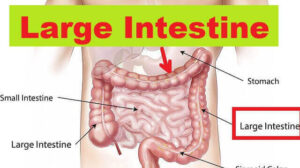
Inflammation of the intestine or inflammatory bowel disease consists of 2 types of diseases, namely ulcerative colitis and Crohn’s disease.
Ulcerative colitis is a chronic inflammation of the innermost layer of the colon, while Crohn’s disease is an inflammation that can occur throughout the digestive system, ranging from the mouth to the rectum.
Risk factors for inflammatory bowel disease
Some risk factors that are believed to increase the risk of a person suffer from this disease, including:
- Age.
- Certain races and ethnicities.
- A history of similar diseases in the family.
- Smo**king
- Excessive non-steroidal anti-inflammatory drug consumption.
- Environment of residence.
Causes of inflammatory bowel disease
The causes of inflammatory bowel disease are still unknown. Some factors such as diet and stress are believed to be one of the factors that worsened the symptoms of this disease. However, it is not the trigger factor of the disease. One cause is estimated because of malfunctions or abnormalities of the immune system.
Disorders of the immune system function occur when a person’s immune system that is supposed to fight against bacteria and viruses instead attacks the intestinal wall layer and disrupts the bowel work.
However, inflammation of the intestine can be triggered by some things such as bacterial, parasitic, or viral infections.
Viral infections.
Norovirus is a type of virus that often becomes a small intestinal inflammation. This Virus causes reduced absorption of liquids and nutrients. Usually this virus comes from food that is digested by the body. However, this virus can also be transmitted without food intermediaries such as through contact with hands, objects or patient vomit marks. Norovirus is highly contagious, especially in the country’s four seasons, with its peak in winter.
Bacterial infections.
Most cases of bacterial infections are sourced from food. Some of the bacteria that often become trigger are Salmonella, Shigella, Campylobacter, and E. Coli. These bacteria attach to the intestinal wall and secrete toxins that cause the body to secrete a lot of fluid. Usually bacteria enter into digestion through red meat and poultry that are not cooked well, eggs or dairy products.
Infections can also be triggered from direct contact with animals or water contaminated by bacteria.
Parasitic infections.
This infection often resembles the symptoms of food poisoning. One parasitic cause of infection is Giardia. These parasites will stick to the small intestine and decrease its ability to absorb liquids normally, causing diarrhea. These parasites live in water (usually swimming pools or lakes) and into the body through the drinking water.
Symptoms of inflammatory bowel disease
Intestinal inflammation generally only shows mild symptoms, so not a few people are underestimating it. Symptoms of inflammation of the intestine should be wary of:
Diarrhea
One of the most common symptoms of intestinal inflammation in a person who has suffered from this condition is diarrhea. This gastrointestinal disorder occurs as an early symptom due to viruses, parasites, or bacteria has begun to cause infections in the digestive tract.
Read also:
Causes of Frequent Bowel Movements
Fever
Other inflammatory bowel symptoms that can occur are fever. The change in body temperature occurs because the body finds foreign substances that attack the body, such as viruses or bacteria. When this happens, the body tries to increase the white blood cells and the body will experience an increase in temperature, thereby causing fever.
Cramps and pain in the stomach
A person who has inflammation of the intestine can generally feel cramps and pain in the stomach. The inflamed intestines can cause pain, so the stomach feels uncomfortable. Cramps and abdominal pain is indeed a symptom of many diseases, so it is difficult to detect that the condition is caused by intestinal inflammation.
Weight loss
Weight loss that continues to decline can also be a symptom of inflammatory bowel. Diarrhea that occurs continuously will make the body lose fluid, and eventually make the weight decrease. Weight loss is also caused by the intestines that have difficulty absorbing nutrients from foods consumed.
Bleeding bowel Movements
An inflammation of the intestine that occurs in a person can make the patient suffer from bloody bowel movements. It occurs because of severe intestinal inflammation, so there is a wound in the intestines that make it out in conjunction with the stool when defecation.




